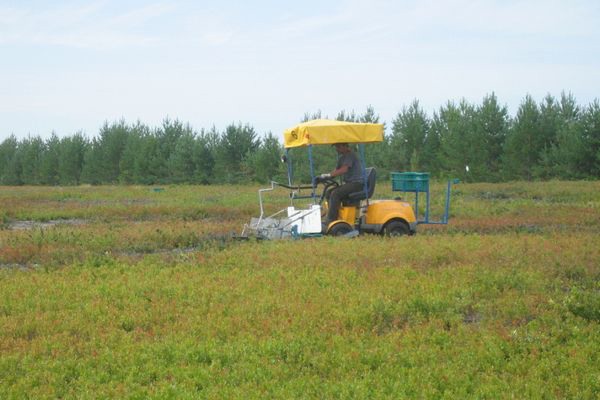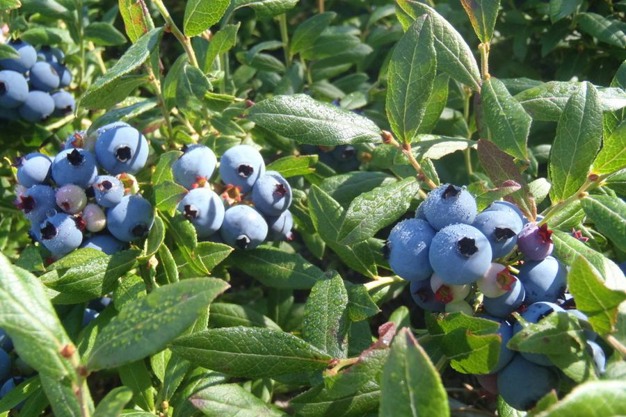It's peak time for Quebec wild blueberries. The season saw its earliest start ever on July 24 and harvest is expected to continue for another three weeks. "We have two intense weeks ahead of us and expect to wrap up between September 7 and 10," says Jean-Pierre Senneville, President/CEO of Quebec Wild Blueberries. Immediately after harvest, the berries are brought to one of four processing facilities where they are flash frozen (IQF) or processed into concentrated juice. In frozen form, the highly anticipated berries make their way all over the globe. "We definitely have a unique, niche product here in the former forests of Quebec," Senneville commented. "Not only are the blueberries grown in the wild and contain twice as many antioxidants as cultivated blueberries, they are also all-natural, and the large majority is grown organically." This gives the province a competitive advantage.

High quality standards
Customers from all over the world ask for frozen wild blueberries from Quebec because of their high quality. "Our blueberries are the number 1 standard quality in Japan and in the U.S., we support some very large private label programs." When berries are packed in a private label bag, retailers expect high quality. Altogether, wild blueberries from Quebec are exported to 35 countries globally with the U.S., Europe, and Asia being key markets. "In order to keep our standards high, we harvest at night when temperatures are lower," commented Senneville. Cooler weather limits mechanical damage to the fruit. In addition, small harvesters are used to limit the pressure on the soil and fruit is packed in small plastic boxes instead of large crates. "In small boxes, the pressure on the fruit is lower, preventing the berries from getting damaged."
An additional benefit for growers and processing facilities this season is that the quality of the crop is excellent. Although the growing conditions were suboptimal and resulted in smaller size fruit, there is a benefit to a smaller berry. "When the fruit is large in size, berries sometimes split. As they are smaller in size this season, we hardly have that problem." Altogether, about 400 growers are involved with growing wild blueberries in Quebec. Farms range in size from small operations of about 5-10 acres to very large operations of 30,000 acres.

Small harvester.
Lack of beehives
While quality is high, production volume is a lot lower compared to last year. "The crop is satisfying as we have a little bit of inventory and will be able to meet our customers' demand. However, we believe volume will be about 30 percent less compared to last year," Senneville shared. June was a very wet month and with pollination taking place during that time, it wasn't optimal. In addition, pollination got challenged by a lack of beehives in the industry. Beekeepers are having severe issues with diseases and growers didn't have access to as many beehives as they usually do. The wet month of June was followed by extreme heat in July, taking a toll on the crop. Given that volume often comes from fruit size, a reduction of large fruit is resulting in a lower total volume.

All-natural and organic
With consumers becoming increasingly aware of their health, demand for all-natural and organic wild blueberries has been witnessing an increase for many years. "They burst with anthocyanins and vitamins, making them one of the healthiest fruits in the world that should be part of everyone's diet," Senneville said. Last year, the economic downturn caused demand to slow down. "This happened for the first time since 2008, the year of the global financial crisis. However, demand is back to normal this year and the all-natural and organic industries seem to be healthy. I'm optimistic about the future of our product."
 For more information:
For more information:
Jean-Pierre Senneville
Quebec Wild Blueberries
Tel: +1 418-679-6348
jps@wild-blueberries.com
www.wild-blueberries.com
